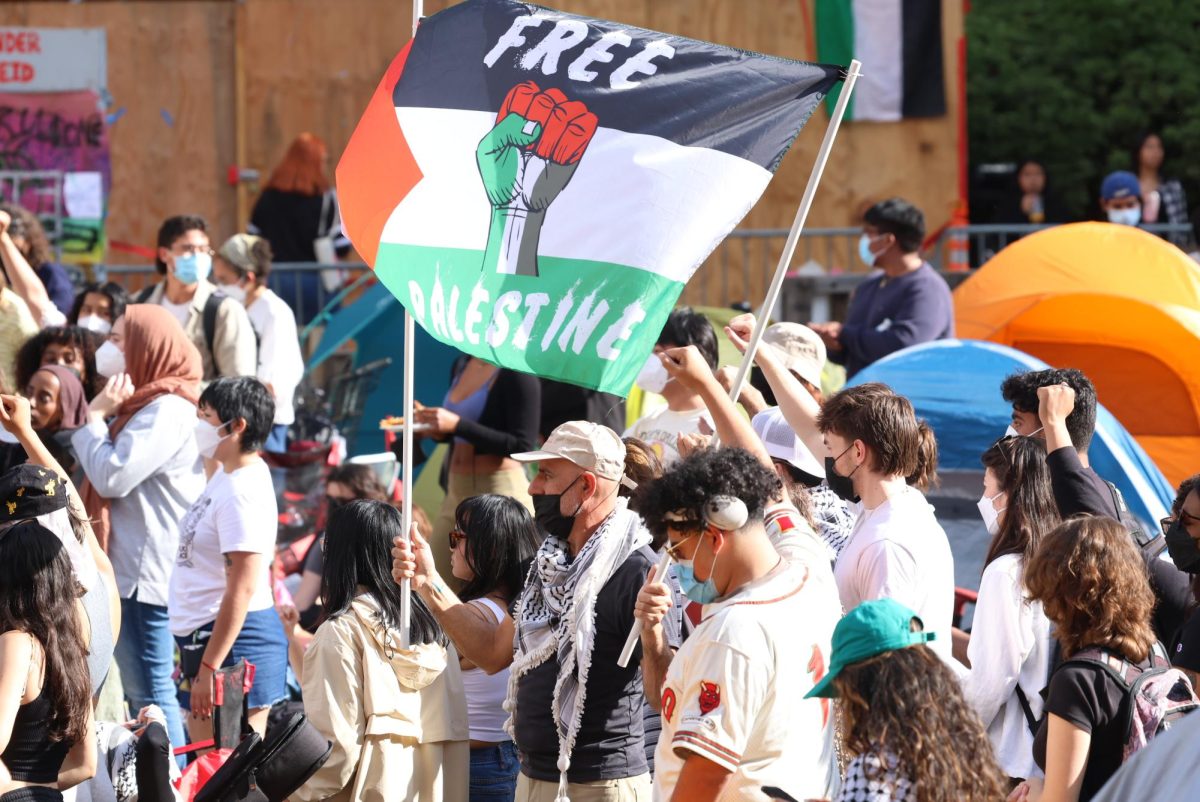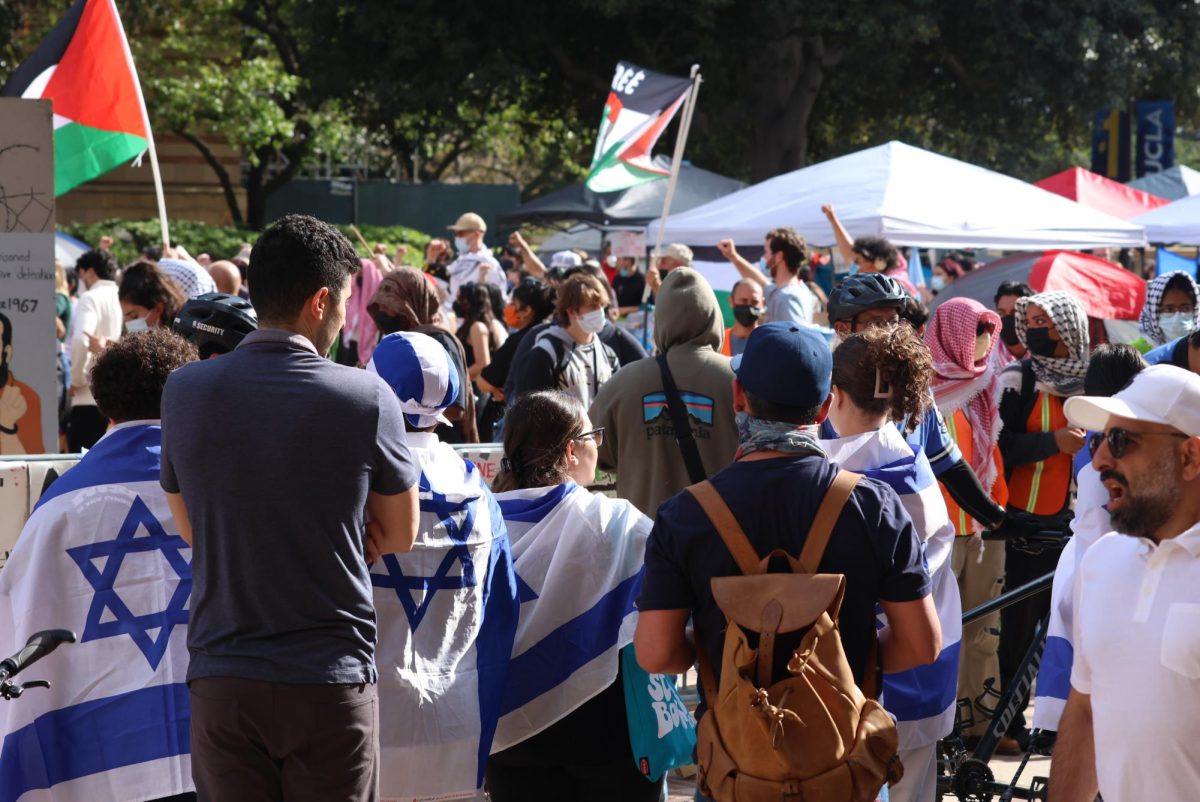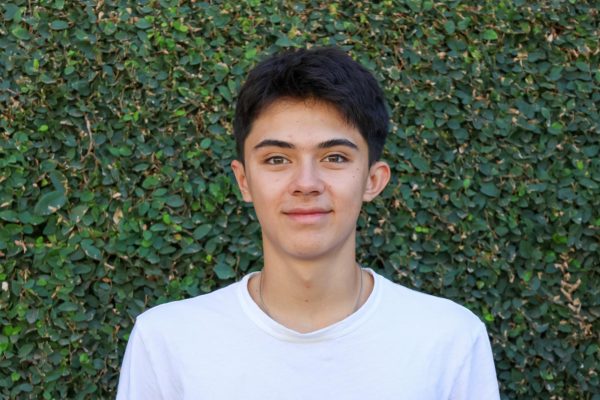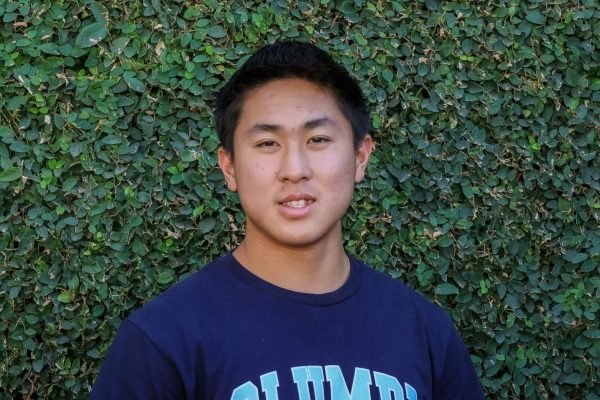A couple days after the Palestinian militant group Hamas led terrorist attacks against Israel on Oct. 7, Jewish Harvard student Violet Barron ’22 read a letter signed by over 30 Harvard student organizations, which stated they “held the Israeli regime entirely responsible” for the attacks in southern Israel. Still grieving the sudden attacks, Barron opposed the inflammatory contents of the letter.
A month later, Barron was sitting on a Cambridge sidewalk and watched as a truck with a bright flashing screen drove past her. Barron was shocked to see a few of her classmates and friends on the screen with the bold words above their faces: “Harvard’s Leading Antisemites.” After that day, Barron said she strongly believed the counter-response against the protesters was inappropriate.
“I was standing there, watching their faces pass by and thinking, ‘I know that these people are not antisemitic,’” Barron said. “‘Some of them are my good friends. Perhaps I disagree with them politically, but they’re not hateful.’ It was at that moment I realized the narrative created against protestors was wrong.”
Now, seven months later, Barron is one of five students suspended by Harvard, according to The Harvard Crimson. She has been punished for her continuous participation in on-campus demonstrations and the pro-Palestinian encampment in Harvard Yard, where she lived for nearly three weeks. She is an organizer of Harvard Out of Occupied Palestine, the student organization that created the encampment, and a co-founder of Harvard Jews for Palestine, a group of Jewish students in solidarity with Palestine.
Following the terrorist attacks in October, which left 1,200 Israelis dead and 240 taken hostage, the war in Gaza continues, in now its eighth month of fighting. Over 35,000 Palestinians have been killed, according to the United Nations Office for the Coordination of Humanitarian Affairs. Israeli and Hamas leadership have been stuck at an impasse negotiating terms of a ceasefire, or the release of hostages, complicating the transport of humanitarian aid to Palestinians in need. Israel is currently waging its campaign against Hamas. Their military is operating in both northern and southern Gaza, notably in Rafah, where almost 300,000 Palestinians have been displaced, according to The New York Times.
At universities across the country, many school leaders have refrained from taking political stances to remain impartial in the governing of their student body. In a similar fashion, President Rick Commons said the administration will continue to withhold any political opinions on the conflict while supporting affected students.
“We’re not taking a position as an institution on what Israel has the right to do or [if] Gaza has the right to resist,” Commons said. “We are seeking to make it possible for students to think about it, to understand it and to be educated about it. And, we want to support our Jewish students, our Muslim students and all students who are affected. Colleges have been in a very difficult spot of wanting to give students room to express their opinions but to [also] protect against antisemitism and other forms of hate or hate speech.”
Barron said the rise of protests across the nation has highlighted the importance of free speech and activism as a college or high school student.
“At college, there are more people that support this cause,” Barron said. “Like we’ve seen with these encampments, college campuses are completely mobilized and are rallying around Palestine. It’s unfortunate that this cause isn’t found at Harvard-Westlake, but there are places where you will find that. This is a global movement, and it’s one that’s seen more by the day. More and more places will become an accepting environment where you can express your views.”

In addition to the encampment in Harvard Yard, pro-Palestinian students and external supporters created encampments on college campuses across the country. The first encampment was created on the South Lawn of Columbia University on April 17 to protest Israel’s military actions and the growing humanitarian crisis in Gaza. Columbia students and protestors not affiliated with the school also called for the university to divest — withdraw all investment and cut economic ties — from companies affiliated with Israel. Some universities have attempted to meet the demands of student organizations’ peacefully, while others have resorted to shutting down encampments with police force and threats of suspension if student protesters continue to interrupt school activity and events.
Jewish Club Leader Oren Hartstein ’24 will be attending Columbia next fall, and his older brother Guy Hartstein ’20 is currently a junior at Columbia studying economics. Following the campus protests, Guy Hartstein’s classes met virtually for the rest of the year, and he remained off the Morningside Heights campus, where Columbia’s main academic buildings are located. Oren Hartstein said the rise of antisemitism has been due to a lack of awareness on college campuses.
“There’s a group of entitled college students who have taken a complicated geopolitical issue and somehow found a way to make it about themselves,” Oren Hartstein said. “People at Columbia have become way more comfortable saying things that are completely ridiculous, and if they were said about any other group, they would be expelled immediately.”
Adam Schiller ’24 will be participating in a five-year program in which he will study both at Columbia and the Jewish Theological Seminary at List College. Despite tension regarding the conflict at Columbia, Schiller said he has been content with his commitment decision.
“I wanted to be able to do more of a Jewish education alongside getting a secular education, so I felt this program was perfect,” Schiller said. “I don’t regret my decision at all, even with everything that happened. It’s bad, and it’s also bad at plenty of other places too. I appreciate that the university is still standing by its original stance. I don’t know if I could do anything better than that.”
Charlotte Newman ’24, Oren Hartstein’s co-leader, will be attending Harvard University next year. Newman said she believes Harvard administration has held pro-Israel demonstrators to a different standard.
“The [campers] were able to get up and take down the American flag and replace it with a Palestinian flag, but when Jewish students asked for the Israeli flag to be put up after October 7, in conjunction with the American flag, the administration said no,” Newman said. “There’s a different standard for the [Jewish] students.”
On her admitted students visit, Newman said she was able to explore options of support in the university’s Hillel and Chabad organizations, which are centers dedicated to supporting Jews on college campuses.
“[Intimidation] exists everywhere,” Newman said. “No school is immune. But on the other hand, there’s a great Jewish community [in Hillel and Chabad] that I’m about to become a part of. I think it’s better to focus on the positives.”
Similarly, Oren Hartstein said the large support of the Jewish community at Columbia has helped him personally in the face of the university’s recent struggles with antisemitism.
“What’s more important is if I can surround myself with people that will support me,” Oren Hartstein said. “That’s more important than knowing that there are people and antisemites who are against me. The Jewish community at Columbia is very large, and that’s what matters.”
College students across the U.S. have historically protested against several political issues, demanding their administration to contribute to change. In the 1960s, anti-war protests against the Vietnam War broke out at college campuses, namely at Columbia, where students occupied buildings and took a dean hostage, resulting in a large police confrontation with over 700 students arrested, according to The Columbia Spectator. Similarly, students in the past have protested for university leaders to divest from defense companies and cut wider financial ties associated with the Vietnam War.
Upper School History Teacher Naqib Shifa was a pro-Palestinian activist at the University of California, Los Angeles (UCLA), where he graduated in 2008. Born to Afghani parents and raised in California, Shifa said his Islamic faith led him to advocate for Palestinian and Muslim causes throughout his undergraduate years, specifically, the U.S. invasion of Iraq in 2003 and the Israeli blockade of the Gaza Strip in 2007.
Historically, Shifa said young people and students have acknowledged and have protested against former political issues in the past, which has resulted in growing support for Palestine today.
“The common denominator for the Palestinian issue today is human values, justice, compassion and care,” Shifa said. “Justice is a universal language that’s embedded in every human being, irrespective of time, nationality and geography. For example, just like the civil rights movement, the Vietnam War, Iraq and South Africa, whenever there was a clear injustice happening in the world, as human beings, [especially students], naturally and innately respond to it.”
Despite assertions that the encampments have been antisemitic and violent, Shifa said protests are mainly intended to bring awareness to the humanitarian crisis in Gaza and demand a ceasefire.
“There is a gross humanitarian crisis,” Shifa said. “A lot of students are appalled by that. We even see that the people at the protest are Jewish Americans, saying, ‘I stand with the Palestinians because what’s going on right now is a terrible injustice.’”

As Shifa described, Jews like Barron have mobilized against university administration and have fought for Palestinian interests. In recent months, Barron called for university leaders to disclose funds and donors and divest from companies with ties to Israel. She recently met with Interim President Alan Garber to discuss how the university would meet the groups’ demands.
Leading up to her activism, Barron said she noticed how tragedies of Jewish history were being used to justify Israel’s actions against Palestine.
“Jewish people have this long history of persecution,” Barron said. “As a Jew, it was something we talked about every holiday and something I learned in Hebrew school. There’s this idea that because we are eternal victims anything that we do is justifiable or excusable. As Jews, we should hope that what happened to us doesn’t extend to others. But [Israel] has been actively subjugating and killing Palestinians, and has been perpetrating a genocide. [Our victimhood] has been used as an excuse to do absolutely anything.”
Furthermore, Barron said her sentiment for the Palestinian people stemmed from her sympathetic and open-minded approach to the conflict.
“I’m not a protester,” Barron said. “I don’t typically feel so strongly about things that I’m willing to get suspended for them. But, you can’t excuse this. The second you’ve put a face to what is happening, and you meet people with family in Gaza who have been killed or grandparents who were expelled in 1948, that’s the second that it becomes something utterly inexcusable, and something which you must protest against.”
Having witnessed the recent pro-Palestinian sentiment across the country, Shifa said he was proud of the next generation of students for understanding the struggle of the Palestinian people, regardless of their background.
“[These protests] are all about spiritual truths against injustice, regardless of race and ethnicity,” Shifa said. “Additionally, one of the reasons why it’s concentrated among students right now is because students have a really beautiful privilege. They’re living in a rarefied environment where they can intellectually study these matters. It’s really beautiful to see this happening across the nation.”





























Jennifer Golub-Marcus • May 29, 2024 at 8:13 pm
“Voices of Liberation” was the title of a recent news feature about the campus protest. I have concerns about the choice of wording here. This is a war in response to October 7th, and Israel, which has been attacked countless times in the last 76 years, has a right to security. The campus protests have featured chants such as “Globalize the Intifada,” “Intifada in America,” and “Intifada Now.” A relative of mine heard this one quite commonly on the Columbia University campus: “There is only one solution! Intifada Revolution” (Perhaps in reference to the Final Solution?) Other reported chants have included “Death to Zionists.”
These are not voices of liberation for Palestinians or Israelis. These common use of the term stems from violent terror attacks against Israelis, as during the Second Intifada (2000 to 2005), when over 1,000 Israelis, Americans, and other foreigners were killed in Israel in 138 separate terrorist attacks, in malls, coffee shops, discos, and public buses, and were designed to destroy Israel’s sense of security. This is the common use of the word “intifada” in our parlance, and when students chant “Intifada Revolution,” students may be thinking “liberation,” but the historical context is far more complex, and deals intimately with violence, religious hatred, terrorism, and atrocity.
The horrific and face-to-face violence that Hamas inflicted upon Israelis on October 7 included many documented cases of rape and sexual violence followed by point-blank execution; such acts have nothing to do with “liberation.” Israel’s violent military response to Hamas’ massive surprise attack has resulted in a high civilian death toll precisely because Hamas has tunneled throughout civilian areas, under hospitals, schools, and apartment buildings – everywhere in Gaza, in fact, so that the Israeli effort to safeguard Israeli security and to dismantle Hamas has become truly a Gordian knot. This has also played directly into Hamas’ plans and hands, since no one wants to see the deaths of so many innocent civilians.
One thing is quite correct in the article, however: the American campus protesters are privileged students indeed, not the least of which is the daily privilege they have in which they do not need to worry about their security, nor that chants of global intifada might ultimately erase their existence.
Voices of Liberation? No doubt to some. But sloganeering often obscures more than it enlightens.